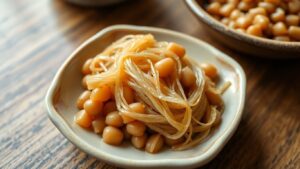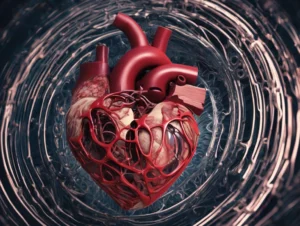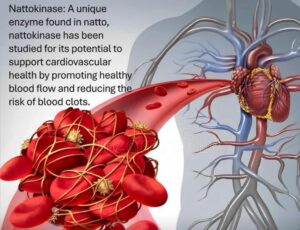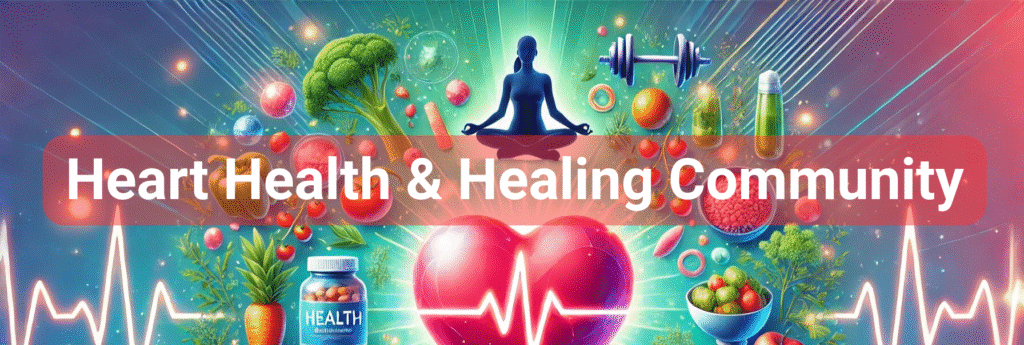A healthy heart is super important for just living your life. It pumps blood, gets oxygen where it needs to go, and helps clear out waste. Heart disease is a big deal in the US, so taking care of your ticker is a smart move. While diet and exercise are number one, some supplements might give your heart an extra boost. It can be confusing to figure out what actually works, so we looked into what experts say are some of the best supplements to help support your heart health.
Key Takeaways
CoQ10, fish oil, psyllium husk, plant sterols, and turmeric are five top supplements for heart health.
Living a healthy lifestyle, like eating well and staying active, is the most important thing for your heart.
Always chat with your doctor before starting any new supplements to make sure they’re safe for you and fit your health needs.
CoQ10
Coenzyme Q10, or CoQ10 for short, is something your body actually makes. It’s found in pretty much every cell, but the highest amounts are in places like your heart, liver, kidneys, and pancreas. Think of it as a little helper for your cells, assisting them in creating energy. It also acts like a shield, protecting your cells from damage.
Now, here’s the thing: as we get older, our bodies don’t produce as much CoQ10. Some research also suggests that people with heart issues might have lower levels. Because of this, taking a CoQ10 supplement could potentially help your heart muscle work better and offer some protection against cardiovascular problems.
When you look at CoQ10 supplements, you’ll usually see two forms: ubiquinone and ubiquinol. Both are naturally present in your body. Ubiquinol is basically the active form, meaning your body can use it right away, and it’s thought to be absorbed a bit better. However, some studies hint that ubiquinone might offer more protection for the heart, especially if you’re dealing with heart failure.
It’s worth noting that while some people take CoQ10 to help with muscle pain that can come with certain cholesterol medications, the scientific backing for this specific use isn’t super strong. Always chat with your doctor if you’re experiencing side effects from medication; they can help you find the right solution, which might not always be a supplement.
Here’s a quick look at what CoQ10 does:
Energy production: Helps your cells create the energy they need to function.
Antioxidant: Protects your cells from damage caused by unstable molecules.
Heart support: May help improve heart muscle function and offer protection.
Age-related decline: Levels can decrease with age, making supplements a consideration for some.
Fish Oil
If you’re not eating fish regularly, you might be missing out on omega-3 fatty acids, which are pretty important for keeping your heart in good shape. Fish oil supplements are basically concentrated doses of these omega-3s, mainly EPA and DHA. They’ve been linked to a bunch of good things for your ticker, like helping to calm down inflammation, bringing down triglyceride levels, and generally protecting your blood vessels. Some studies even suggest a small reduction in heart disease risk for those taking fish oil.
It’s worth noting that while the general idea is good, the research isn’t always crystal clear on supplements versus eating fish. Prescription versions of fish oil are used for specific medical reasons, like managing very high triglycerides, and they contain much higher doses than what you’d typically find over the counter. Plus, some over-the-counter options might not be as pure as advertised or could contain other fats that aren’t so great for your cholesterol.
Here’s a quick look at what omega-3s are thought to do:
Reduce inflammation throughout the body.
Help lower triglyceride levels in the blood.
May improve heart rate variability.
Can help protect the lining of your blood vessels.
When considering fish oil, it’s always a good idea to chat with your doctor. They can help you figure out if it’s right for you and recommend a quality product. Remember, supplements aren’t a magic bullet, and a balanced diet with actual fish is usually the best way to get these nutrients.
Psyllium Husk
Psyllium husk is a type of fiber that comes from the seeds of the Plantago ovata plant. You might know it as a common ingredient in some fiber supplements, but it’s got some pretty good benefits for your heart too.
It’s a soluble fiber, which means it can grab onto cholesterol in your digestive system and help your body get rid of it before it gets absorbed. This is a big deal because it can help lower your “bad” LDL cholesterol levels. High LDL is a major risk factor for heart disease, so anything that helps bring it down is a win.
Beyond cholesterol, psyllium husk can also help manage blood sugar levels. Keeping your blood sugar in check is important for reducing the risk of diabetes, another condition that impacts heart health. Plus, it might help with blood pressure by improving how your arteries work and keeping sodium levels balanced.
When you start taking psyllium husk, it’s a good idea to go slow. Jumping in too fast can sometimes lead to gas or bloating. Start with a small amount, maybe around 3 grams a day, and slowly increase it as your body gets used to it, up to about 10 grams daily if you tolerate it well. Also, make sure you’re drinking plenty of water when you increase your fiber intake; it really helps.
Soluble fiber is the key player here, and psyllium is a great way to get more of it if your diet is a bit low.
Here’s a quick look at how it helps:
Lowers LDL cholesterol.
May help regulate blood sugar levels.
Can contribute to healthier blood pressure.
Supports overall digestive regularity.
Plant Sterols
You might have heard about plant sterols, sometimes called stanols. They’re naturally found in small amounts in things like fruits, veggies, nuts, and seeds. The cool thing about them is that they look a lot like cholesterol. Because of this, they can get in the way of cholesterol being absorbed in your digestive system.
Basically, they block some of the cholesterol you eat from getting into your body. This can help lower your “bad” LDL cholesterol levels without messing with your “good” HDL cholesterol. It’s pretty neat how something from plants can do that.
Here’s a quick look at how they work:
Structural Similarity: Plant sterols have a molecular structure very similar to cholesterol.
Absorption Competition: In your gut, they compete with dietary cholesterol for absorption.
Cholesterol Blockage: By winning this competition, they prevent some cholesterol from entering your bloodstream.
Studies have shown that taking about 2 to 3 grams of plant sterols or stanols daily can lead to a noticeable drop in LDL cholesterol. Some research even suggests they might make LDL particles less likely to stick together, which could be good for keeping your arteries clear.
While you can get these from food, getting enough to make a real difference might be tough. That’s where supplements or fortified foods come in handy. Just remember to check the labels and talk to your doctor if you’re unsure.
Turmeric

Turmeric, that vibrant yellow spice you see in curry dishes, has been getting a lot of attention for its potential to help your heart. The main active ingredient is called curcumin, and it’s thought to be responsible for a lot of turmeric’s good stuff. Curcumin has properties that fight inflammation and act as an antioxidant. Think of chronic inflammation like a slow burn that can damage your blood vessels over time, increasing your risk for heart problems. Curcumin seems to help calm that down and protect your heart from damage caused by unstable molecules.
Some research also suggests that curcumin might help improve blood flow, potentially lower cholesterol, and even slow down the buildup of plaque in your arteries, which is a major cause of heart attacks and strokes. It’s pretty interesting stuff for a common kitchen spice.
While turmeric is generally considered safe, even at higher doses, it’s not without potential side effects. Some people might experience an upset stomach or feel a bit nauseous. It can also affect how your body absorbs iron and might interact with certain medications you’re already taking. In rare cases, very high doses of potent turmeric supplements have been linked to liver or kidney issues.
Here’s a quick look at what curcumin might do:
Reduces inflammation: Helps combat the body’s inflammatory responses.
Antioxidant action: Protects cells from damage.
Improves circulation: May help blood flow more smoothly.
Cholesterol management: Some studies indicate it can help lower cholesterol levels.
Prevents plaque buildup: Could play a role in keeping arteries clear.
Wrapping Up Your Heart Health Journey
So, we’ve looked at some supplements that might give your heart a little extra support. Things like CoQ10, fish oil, psyllium husk, plant sterols, and turmeric could be helpful additions. But remember, these aren’t magic pills. The real heavy lifting for a healthy heart comes from the everyday stuff: eating well, moving your body, managing stress, and getting regular check-ups. Think of supplements as a small boost, not a replacement for a good lifestyle. Always chat with your doctor before you start anything new, just to be safe and make sure it’s right for you. Taking care of your heart is a big deal, and doing it consistently is the best way to keep it ticking along nicely for years to come.
Frequently Asked Questions
What is CoQ10 and why is it good for my heart?
CoQ10, which stands for coenzyme Q10, is like a tiny energy booster found in your body’s cells. It helps your cells make energy and also acts like a shield, protecting them from damage. Your heart has a lot of CoQ10 because it works so hard. Taking CoQ10 as a supplement might help your heart muscle work better and stay healthier.
What are omega-3 fatty acids, and where can I find them?
Omega-3 fatty acids are important fats that your body needs, especially for a healthy heart. You can get them from eating fatty fish like salmon. If you don’t eat fish, fish oil supplements are a great way to get these helpful fats. They can help reduce swelling in your body, lower certain fats in your blood, and keep your blood vessels working well.
How does psyllium husk help my heart?
Psyllium husk is a type of fiber that’s really good for your heart. It helps your body absorb less of the cholesterol from the food you eat. Think of it like a sponge that soaks up extra cholesterol. Getting enough fiber can help keep your cholesterol levels in a good range, which is important for preventing heart problems.
What are plant sterols and how do they work?
Plant sterols are natural substances found in plants, like nuts and whole grains. You can also find them in supplements or foods like certain margarines and yogurts. They work by blocking your body from absorbing cholesterol from the food you eat. This can help lower the amount of ‘bad’ cholesterol in your blood.
What makes turmeric beneficial for heart health?
Turmeric is a bright yellow spice that has a powerful ingredient called curcumin. Curcumin is known for its ability to fight swelling and protect your body from damage caused by harmful molecules. Since swelling can harm your blood vessels and increase heart disease risk, curcumin’s anti-swelling effect is great for your heart. It might also help blood flow better and prevent sticky stuff from building up in your arteries.
Can supplements replace a healthy lifestyle for heart health?
No, supplements are not a magic fix and can’t replace healthy habits. Eating well, staying active, managing stress, and not smoking are the most important things you can do for your heart. Supplements can be a helpful addition to these good habits, but they should never be the only thing you focus on. Always talk to your doctor before starting any new supplements.











